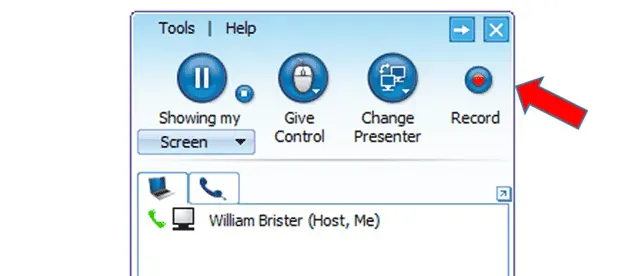

Current Clients: 312-265-8733 | Service Hotline: 312-564-4888

In a web browser, go to your meeting server web address https://meetingmanager.io. Click the Host Meeting link. Download MeetingManager and run it.
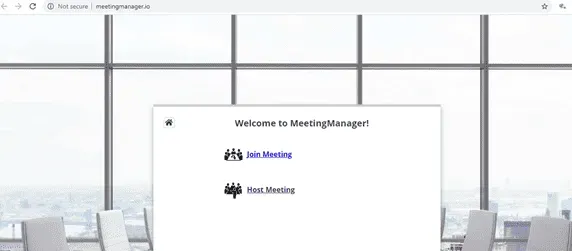
Launch MeetingManager by clicking the MeetingManager shortcut from the desktop or start menu. Login using your Meeting manager username and Password. If the meeting server address is blank, please enter 75.98.50.123 in this field. After login you can see in the MeetingManager Control Panel, the list of scheduled meetings and the following options available:
Host an unscheduled meeting
Schedule a meeting
Join a meeting
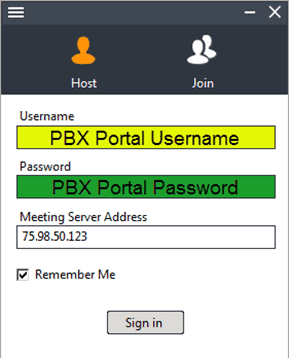
Click Host to host an impromptu meeting.
Interactive Meeting |
It allows you and your attendees to show and control each other's screen. |
HD Video Conference |
It allows you to conduct an HD video conference. |
Webinar |
Attendees don't need to download anything and can view your presentation instantly with a browser on any platform. |
Remote Support |
View and control attendee's computer immediately after the attendee joins this meeting. |
Remote Access to This Computer |
Allow this computer to remotely be unattended controlled. Meeting password is mandatory for this meeting. |
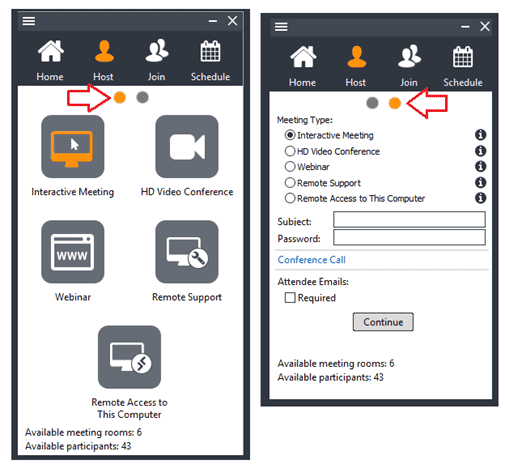
When you receive an invite from the host, open your browser and:
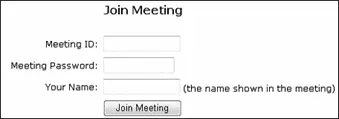
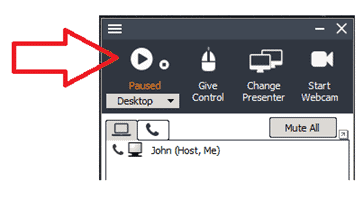
By default, your desktop is shown to the other attendees. The drop-down list displays all the applications open in your system. To show another application, click the drop-down and choose any running application.
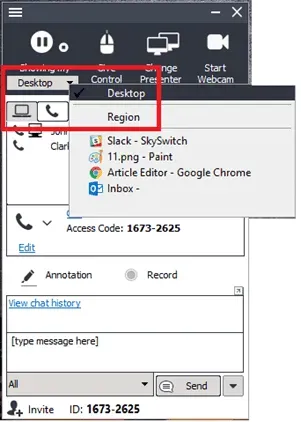
The attendees who have joined the interactive meeting can also be the presenter to show his or her computer screen to other meeting participants. By default, the host will be the presenter. However, during a meeting, the host and the current presenter can assign any participant to be the presenter. To change the presenter, click Change Presenter and choose the presenter.
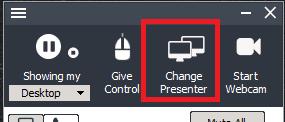
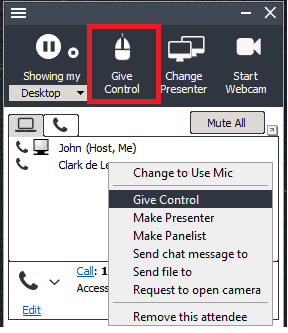
While convening a meeting you can also chat with attendees. To chat with the attendees:
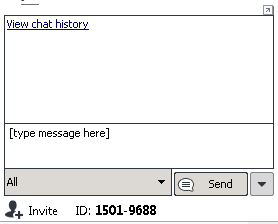
During a meeting, you can record the actions on the presenter's screen. It also records the voice captured by the microphone on the presenter's computer. To record the meeting conversation, you need to turn on your speakerphone and move it close to the microphone in order to capture conversations. Click the record button to start recording and click it again to stop recording. When stopping the recording, the system prompts you to ask where to save the recording file. The file is an executable. Just run the file and it will replay the entire recording session.
